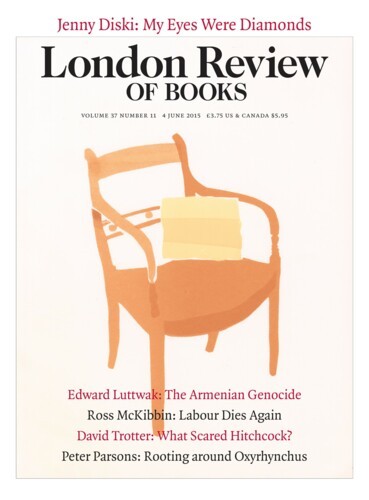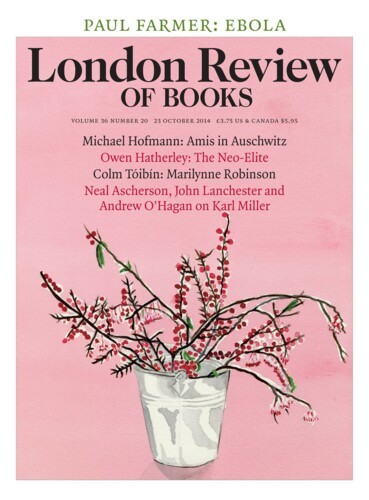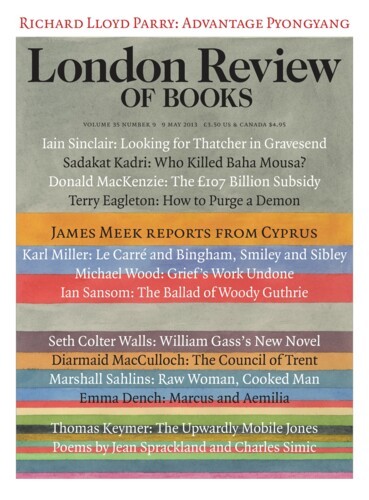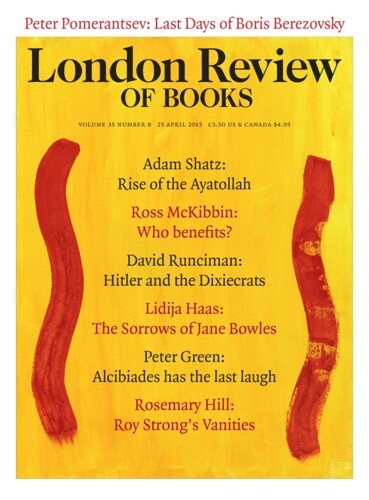Small Hearts: Anne Enright
Terry Eagleton, 4 June 2015
Hegel believed that happiness was largely confined to the private life, a view that would scarcely survive a reading of the modern novel. A lot of fiction since the early 20th century takes it for granted that families will be dysfunctional, individual lives unfulfilled and relationships cockpits of gladiatorial combat. Almost all the characters in Anne Enright’s superb new novel are...





